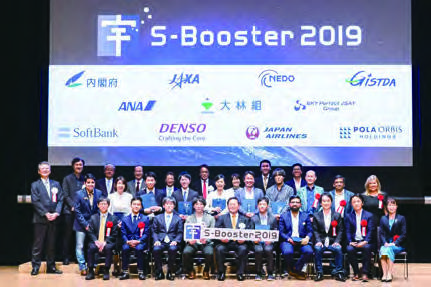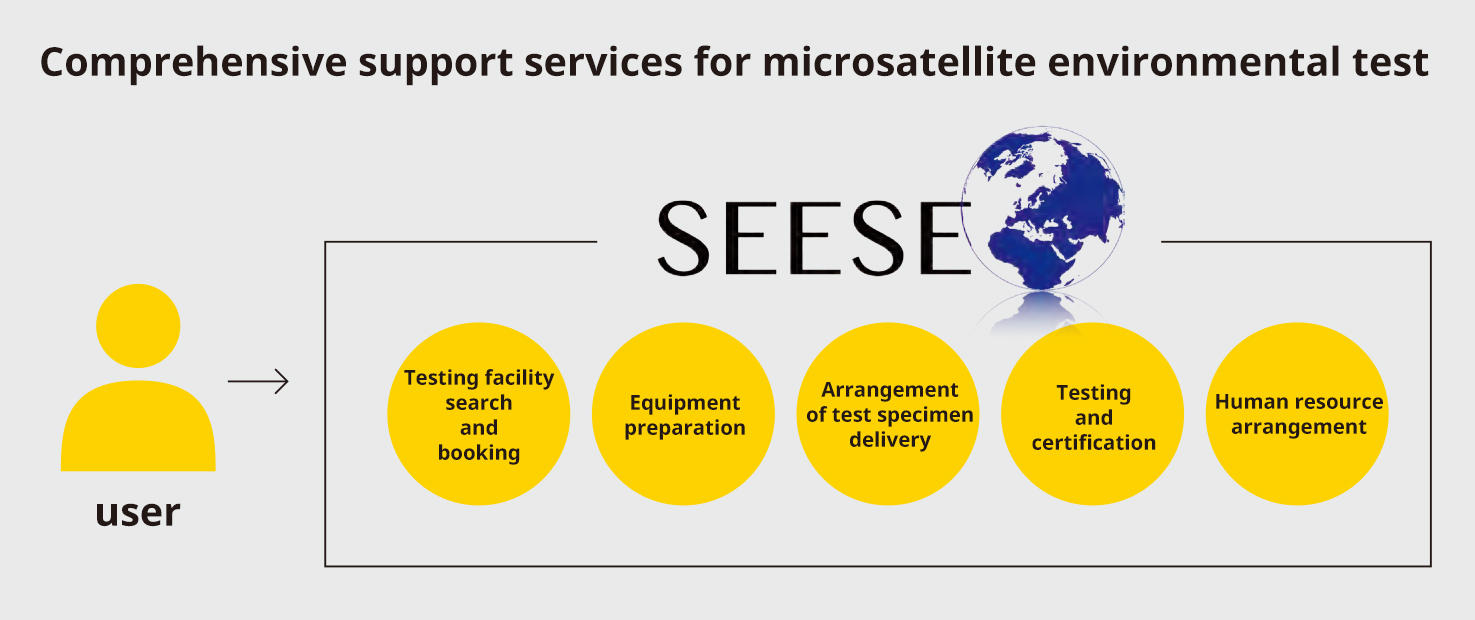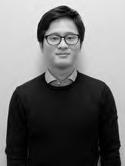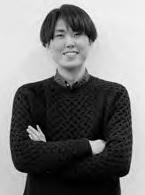Business Development and Industrial Relations Department
Space Business Contest
"S-Booster 2019" Successfully Completed
S-Booster is a contest hosted by the Cabinet Office, in collaboration with JAXA and the New Energy and Industrial Technology Development Organization (NEDO) to solicit ideas for new space-based businesses and to provide entrepreneurs with the support needed to turn their ideas into businesses. Candidates are screened based on the criteria of profitability, innovativeness, and prospect for social development. In its third year, S-Booster in 2019 expanded the geographical area and solicited ideas from the Asia-Oceania region for the first time, resulting in some 200 applications from around Japan and about 100 from eight nations and regions outside Japan. 12 teams were selected as finalists, and the award winners were announced during the Final Round in November 2019. "Every year we see more and more viable and highly sophisticated business ideas," says TAKEDA Takashi of the Business Incubation and Support Division, Business Development and Industrial Relations Department, who is involved in the planning of the event as a steering committee member.

JAXA staff are also playing an increasingly prominent role as S-Booster is held year after year. JAXA staff were part of 1-2 finalist teams in the 2017 and 2018 contests, but in 2019 they were in 3 teams, all of which won awards. Projects entitled "Satellite Re-use Market," "Manufacturing High-value Added Material in Space Factory," and "Sharing Environmental Experimental Space on the Earth," were respectively selected for the JAL award, the Pola Orbis Holdings Award, and the JAXA Award.
"SEESE from ABLab," the team selected for the JAXA Award, focused on environmental testing. This testing is a critical process in satellite development that is used to determine if a satellite can operate normally even in a harsh space environment. In some cases, the testing accounts for approximately one-third of the entire manufacturing cost and roughly one-half of the entire development period. "There are over 600 testing facilities across Japan, but their facility-operating ratios vary greatly depending on their visibility and track record. It is not uncommon to wait over a month during busy times," says TANADA Kazuhisa, team leader and staff of JAXA's Earth Observation Research Center (EORC).
TANADA continues: "Variation occurs because of differences among testing facilities in terms of distance, price, and visibility. A closer distance to the testing facility allows you to avoid the risk of satellite breakdowns during transportation and also reduce costs. Also, since different testing prices are offered by testing site operators, affordable facilities will naturally be more popular. And companies with well-established track records and those with a strong online presence in the industry tend to have more bookings."

such as arranging necessary equipment and materials and delivering them to testing facilities with test specimens.
To improve this situation, the team proposed "SEESE," an online search service that allows users to search testing facilities across Japan using criteria such as location, budget, and testing period. By providing not just booking services but comprehensive support solutions, including test specimen delivery, preparation of necessary equipment, and human resource arrangement, SEESE eliminates the complications involved in typically required arrangements.
"Ultimately, we hope to provide so-called testing and certification services, including test result analysis and evaluations," says TANADA. "If SEESE can help lower barriers to environmental testing, perhaps we will see an increase in the number of new entrants to the microsatellite industry, which will then lead to the development of the space industry."
Regarding the future of S-Booster, TAKEDA comments as follows: "As the contest continues on for many years to come, a growing number of past prize winners will actually start a business. We hope to see more teams not only come up with great ideas but move on to the next stage of starting a business and achieving growth. We also look forward to seeing more JAXA employees succeed in the contest as well."
Profile

|
|
|---|

|
|
|---|
All the images are copyrighted ©JAXA unless otherwise noticed.
- Home>
- Global Activity>
- Public Relations>
- JAXA’s>
- JAXA's No.80>
- Space Business Contest "S-Booster 2019" Successfully Completed